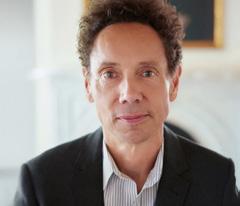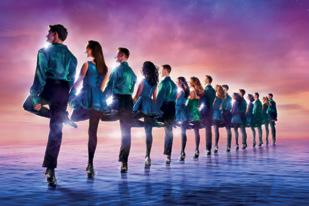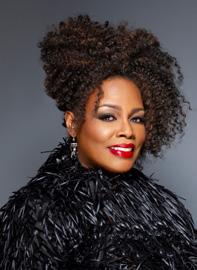

PROGRAM
ELSA BARRAINE (1910-1999)
CAMILLE SAINT-SAËNS (1770-1827)
Symphony No. 2
I. Adagrio-Allegro moderato
II. Marche funèbre
III. Finale: Allegretto
Piano Concerto No. 2 in G minor, Op. 22
I. Andante sostenuto
II. Allegro scherzando
III. Presto
DANIIL TRIFONOV, PIANO
INTERMISSION
MAURICE RAVEL (1875-1937)
MAURICE RAVEL (1875-1937)
Piano Concerto in G major
I. Allegramente
II. Adagio assai
III. Presto
DANIIL TRIFONOV, PIANO
Daphnis et Chloé: Suite No. 2
NOTES ON THE PROGRAM
Symphony No. 2
ELSA BARRAINE
Born: February 13, 1910, Paris, France
Died: March 20, 1999, Strasbourg, France
Composed in 1938, Elsa Barraine’s Symphony No. 2 bears the subtitle “Voïna,” the Russian word for “war.” Written on the eve of World War II, the work is both a personal and political statement, reflecting the tension, grief, and defiance of a world on the brink of conflict.
The symphony opens with a solemn Lento that erupts into a fiercely rhythmic Allegro, where driving motives and bold orchestral colors convey a sense of struggle. A stark Marche funèbre follows, somber and introspective, its restrained lyricism evoking mourning and loss. The finale, marked Allegretto, offers a fragile sense of hope; its buoyant dance rhythms suggesting renewal and resilience, even as shadows from earlier movements linger.
Compact and deeply expressive, Barraine’s three-movement symphony showcases her command of structure, orchestration, and emotional clarity. A student of Paul Dukas and an active member of the French Resistance, Barraine was one of the few prominent women composers in 20th-century France. Symphony No. 2 stands as a powerful testament to her artistry and moral conviction—a musical portrait of humanity under pressure, resolved in courage and light.
Piano Concerto No. 2 in G minor, Op. 22
CAMILLE SAINT-SAËNS
Born: October 9, 1835, Paris, France
Died: December 16, 1921, Algiers, Algeria
Composed in just 17 days in 1868, Camille Saint-Saëns’s Piano Concerto No. 2 remains one of his most beloved and dazzling works. Written for and premiered by the composer himself with Anton Rubinstein conducting, the concerto is celebrated for its wit, virtuosity, and bold reversals of character. These qualities made it an instant audience favorite.
The opening movement begins unusually, with a long, improvisatory solo piano introduction reminiscent of Bach, reflecting Saint-Saëns’s reverence for Baroque counterpoint, before exploding into a fiery Romantic drama. The second movement, a playful Allegro scherzando, sparkles with fleet, crystalline passagework and effortless charm. The finale, a whirlwind Presto in the style of a tarantella, hurtles forward with rhythmic brilliance and breathtaking pianistic flair.
Blending French elegance with Lisztian bravura, Saint-Saëns demonstrates both his formidable pianism and his gift for orchestral color. The Concerto No. 2’s quicksilver shifts, from solemnity to joy, from Classical poise to virtuosic exuberance, make it one of the most exhilarating showpieces in the Romantic repertoire.
Piano Concerto in G major
MAURICE RAVEL
Born: March 7, 1835, Ciboure, France
Died: December 28, 1937, Paris, France
Written between 1929 and 1931, Ravel’s Piano Concerto in G major stands as one of the composer’s most sparkling and accessible works. Inspired by his fascination with jazz, which was newly discovered during his 1928 tour of the United States, the concerto blends French elegance with the rhythmic vitality and harmonic daring of the Jazz Age. Ravel originally intended to perform the premiere himself but, due to declining health, ultimately entrusted it to pianist Marguerite Long, who debuted the work in Paris in 1932 with Ravel conducting.
The opening movement, marked Allegramente, begins with a whip crack and bursts into a lively, jazz-inflected atmosphere filled with syncopation, bright orchestral colors, and virtuosic flourishes. The central Adagio assai provides a striking contrast: a long, singing piano melody unfolds over gentle accompaniment, recalling Mozart’s lyricism and Ravel’s gift for sustained beauty. The finale, Presto, is an exhilarating tour de force that is brilliant, quicksilver, and rhythmically charged, bringing the concerto to a dazzling conclusion.
Radiant and refined, the Concerto in G major captures Ravel’s unique voice at the crossroads of classical tradition and modern invention, a vivid celebration of wit, clarity, and joy in sound.
Daphnis et Chloé: Suite No. 2
MAURICE RAVEL
Composed between 1909 and 1912 for Sergei Diaghilev’s Ballets Russes, Maurice Ravel’s Daphnis et Chloé is often described by the composer as a “symphonie chorégraphique” (a choreographic symphony). Drawn from the ancient Greek tale of two shepherds whose love triumphs through trials and divine intervention, the complete ballet stands among Ravel’s most ambitious scores. From it he later fashioned two concert suites; Suite No. 2 (1913) presents the ballet’s radiant final scenes in self-contained symphonic form.
The suite opens with Lever du jour (Daybreak), one of Ravel’s most luminous orchestral depictions: birdsong, rippling harps, and shimmering strings evoke the gradual awakening of nature. The central Pantomime unfolds as Daphnis and
Chloé’s tender reunion, its flowing clarinet solo and sensuous harmonies building to passionate release. The concluding Danse générale erupts in ecstatic celebration which is wildly rhythmic, dazzling in orchestral color, and irresistibly kinetic.
Rich in impressionistic color and rhythmic vitality, Suite No. 2 distills Ravel’s genius for atmosphere and orchestral brilliance, culminating in one of the most exhilarating finales in all of French music.
MEET THE ARTISTS
CRISTIAN M Ă CELARU
GRAMMY® Award-winning conductor Cristian Măcelaru is Music Director of the Cincinnati Symphony Orchestra, Music Director of the Orchestre National de France, Artistic Director of the George Enescu International Festival and Competition, Artistic Director and Principal Conductor of the Interlochen Center for the Arts’ World Youth Symphony Orchestra, Music Director and Conductor of the Cabrillo Festival of Contemporary Music and Distinguished Visiting Artist at The Shepherd School of Music at Rice University. He also serves as Artistic Partner of the WDR Sinfonieorchester in Cologne, where he was Chief Conductor from the 2019/20 through 2024/25 seasons.
Măcelaru’s 2025/26 guest engagements include debuts with the Münchner Philharmoniker and Orchestra dell’Accademia Nazionale di Santa Cecilia, as well as returns with Tonhalle-Orchester Zürich, Czech Philharmonic, Leipzig Gewandhaus Orchestra, Philharmonia Orchestra and San Francisco Symphony.
Măcelaru’s previous seasons include European engagements with the London Philharmonic Orchestra, NDR Elbphilharmonie, Concertgebouworkest, Symphonieorchester des Bayerischen Rundfunks, Budapest Festival Orchestra and Wiener Symphoniker. In North America, he has led the New York Philharmonic, Philadelphia Orchestra, Los Angeles Philharmonic, Chicago Symphony Orchestra, Boston Symphony Orchestra and The Cleveland Orchestra. He is equally at home as a conductor of opera, with career highlights including productions of Don Giovanni with the Houston Grand Opera and Madama Butterfly with Opera Națională București.
In 2020, Măcelaru received a GRAMMY® Award for conducting the Decca Classics recording of Wynton Marsalis’s Violin Concerto with Nicola Benedetti and the Philadelphia Orchestra. His highly anticipated recording of George Enescu’s complete symphonic works with the Orchestre National de France was released in April 2024 on Deutsche Grammophon. September 2025 marked the release of Măcelaru’s and the Orchestre National de France’s Ravel Paris 2025 album on the naïve label, featuring the symphonic works of Maurice Ravel in celebration of the 150th anniversary of the composer’s birth.
DANIIL TRIFONOV
Grammy Award-winning pianist Daniil Trifonov (dan-EEL TREE-fon-ov) is a solo artist, champion of the concerto repertoire, chamber and vocal collaborator, and composer. Combining consummate technique with rare sensitivity and depth, his performances are a perpetual source of wonder to audiences and critics alike. He won the Grammy
Award for Best Instrumental Solo Album of 2018 with Transcendental, the Liszt collection that marked his third title as an exclusive Deutsche Grammophon artist.
Trifonov’s 2025-26 season includes three programs at Carnegie Hall. First, he performs Schubert’s Die schöne Müllerin with German baritone Matthias Goerne, crowning a transatlantic tour of the composer’s great song cycles that also takes the duo from Toronto, Boston, and Washington, D.C. to Paris, Leipzig, and Vienna. Next at the New York venue, Trifonov joins Cristian Mǎcelaru and the Orchestre National de France for two major French concertos: Saint-Saëns’s Second and Ravel’s jazz-inflected Concerto in G. Finally, he returns to Carnegie Hall for a mainstage solo recital of Schumann, Myaskovsky, Taneyev, and Prokofiev, with which program he tours Europe and the U.S. throughout the season. Other highlights include a European tour with Nikolaj Szeps-Znaider; Brahms’s Second Piano Concerto with both the Cleveland Orchestra and Orchestra dell’Accademia Nazionale di Santa Cecilia; and Beethoven’s Second Piano Concerto with both the Cincinnati and Chicago Symphony Orchestras. Trifonov also explores Tchaikovsky’s more intimate side on a new double album, Tchaikovsky, released by Deutsche Grammophon in October 2025.
Trifonov’s existing Deutsche Grammophon discography includes 2024’s My American Story: North, which received the UK’s Presto Music Award; the Grammy-nominated live recording of his Carnegie recital debut; Chopin Evocations; Silver Age, for which he received Opus Klassik’s Instrumentalist of the Year/Piano award; the best-selling, Grammy-nominated double album Bach: The Art of Life; and three volumes of Rachmaninov works with the Philadelphia Orchestra and Yannick Nézet-Séguin, of which two received Grammy nominations and the third won BBC Music’s 2019 Concerto Recording of the Year. Named Gramophone’s 2016 Artist of the Year and Musical America’s 2019 Artist of the Year, Trifonov was made a “Chevalier de l’Ordre des Arts et des Lettres” by the French government in 2021.
During the 2010-11 season, Trifonov won medals at three of the music world’s most prestigious competitions: Third Prize in Warsaw’s Chopin Competition, First Prize in Tel Aviv’s Rubinstein Competition, and both First Prize and Grand Prix in Moscow’s Tchaikovsky Competition. He studied with Sergei Babayan at the Cleveland Institute of Music.
ORCHESTRE NATIONAL DE FRANCE
CRISTIAN M Ă CELARU, MUSIC DIRECTOR
The Orchestre National de France is both an established authority and a dynamic force in the interpretation of French music. Its international tours have made it a flagship for French culture across the world, while its presence throughout France, reinforced by vibrant educational programmes, has cemented its relationship with a diversity of national audiences.
A Radio France ensemble, the Orchestre National de France was founded in 1934 as the country’s first full-time symphony orchestra. Its mission to serve the symphonic repertoire was furthered by radio broadcasts of its concerts, and it soon achieved an enviable reputation.
After the Second World War, Manuel Rosenthal, André Cluytens and Jean Martinon, among others, enriched this tradition, magnified by successive musical directors (Lorin Maazel, Charles Dutoit, Kurt Masur, Daniele Gatti, Emmanuel Krivine) and regular guests (Leonard Bernstein, Pierre Boulez, Bernard Haitink, Riccardo Muti, Seiji Ozawa...). On September 1, 2020, Cristian Măcelaru took over as Music Director of the Orchestre National de France.
In the course of the 20th century the Orchestre National de France gave the premieres of a number of major works, including Le Soleil des eaux by Boulez, Déserts by Varèse, Messiaen’s Turangalîla Symphony (French premiere), Xenakis’s Jonchaies and the majority of Dutilleux’s large-scale compositions.
Numerous recordings by the orchestra are commercially available. The Orchestre National, under the baton of Louis Langrée, recorded Ravel’s two piano concertos with pianist Alexandre Tharaud, and to mark the centenary of the death of Camille Saint-Saëns, a complete set of symphonies conducted by Cristian Măcelaru for Warner Classics. Finally, a boxed set of George Enescu’s symphonies conducted by Cristian Măcelaru was released in 2024 by Deutsche Grammophon, and a box set of Maurice Ravel’s orchestral works by the Orchestre National de France and Cristian Măcelaru was released in September 2025 by Naïve Records.
Cristian Măcelaru and the Orchestre National de France recently appeared at the Paris 2024 Olympics Opening Ceremony, which was broadcast to 1.5 billion viewers worldwide.
ORCHESTRE NATIONAL DE FRANCE
CRISTIAN M Ă CELARU
Music Director
JOHANNES NEUBERT
General Manager
FIRST VIOLINS
Luc Héry, leader
Sarah Nemtanu, leader
Elisabeth Glab, assistant leader
Bertrand Cervera, sub-leader
Lyodoh Kaneko, sub-leader
Catherine Bourgeat
Nathalie Chabot
Marc-Olivier de Nattes
Claudine Garcon
Xavier Guilloteau
Stéphane Henoch
Jérôme Marchand
Khoï Nam Nguyen Huu
Agnès Quennesson
Caroline Ritchot
David Rivière
Véronique Rougelot
Nicolas Vaslier
SECOND VIOLINS
Florence Binder*
Laurent Manaud-Pallas*
Nguyen Nguyen Huu**
Young Eun Koo**
Ghislaine Benabdallah
Gaétan Biron
Hector Burgan
Magali Costes˚
Laurence del Vescovo
Benjamin Estienne
Mathilde Gheorghiu
You-Jung Han
Claire Hazera-Morand
Khoa-Nam Nguyen˚
Ji-Hwan Park Song
Anne Porquet
Gaëlle Spieser
Rieho Yu
VIOLAS
Nicolas Bône*
Allan Swieton*
Teodor Coman**
Corentin Bordelot***
Cyril Bouffyesse***
Julien Barbe
Emmanuel Blanc
Adeliya Chamrina
Louise Desjardins
Christine Jaboulay
Élodie Laurent
Ingrid Lormand
Noémie Prouille-Guézénec
Paul Radais
CELLOS
Raphaël Perraud*
Aurélienne Brauner*
Alexandre Giordan**
Florent Carriere***
Oana Unc***
Carlos Dourthé
Renaud Malaury
Emmanuel Petit
Marlène Rivière
Emma Savouret
Laure Vavasseur
Pierre Vavasseur
DOUBLE BASSES
Maria Chirokoliyska*
Jean-Edmond Bacquet**
Grégoire Blin***
Thomas Garoche***
Jean-Olivier Bacquet
Tom Laffolay
Stéphane Logerot
Venancio Rodrigues
Françoise Verhaeghe
FLUTES
Silvia Careddu*
Joséphine Poncelin de Raucourt*
Michel Moragues**
Patrice Kirchhoff
PICCOLO
Édouard Sabo*
OBOES
Thomas Hutchinson*
Mathilde Lebert*
Nancy Andelfinger
Alexandre Worms
COR ANGLAIS
Laurent Decker*
CLARINETS
Carlos Ferreira*
Patrick Messina*
Christelle Pochet
E-FLAT CLARINET
Jessica Bessac*
BASS CLARINET
Renaud Guy-Rousseau*
BASSOONS
Marie Boichard*
Philippe Hanon*
Frédéric Durand
Elisabeth Kissel
CONTRABASSOON
Lomic Lamouroux*
HORNS
Alexander Edmunson*˚
Julien Mange*˚
François Christin
Antoine Morisot
Jean Pincemin
Jean-Paul Quennesson
Jocelyn Willem
TRUMPETS
Rémi Joussemet*
Andreï Kavalinski*
Dominique Brunet
Grégoire Méa
CORNET
Alexandre Oliveri*
TROMBONES
Jean-Philippe Navrez*
Julien Dugers**
Olivier Devaure
Sébastien Larrère
TUBAS
Bernard Neuranter
TIMPANI
François Desforges*
PERCUSSION
Emmanuel Curt* Florent Jodelet
Gilles Rancitelli
HARP
Emilie Gastaud*
PIANO/CÉLESTA
Franz Michel
*Principal
**Assistant Principal
***Sub-principal
˚ Musician in the process of becoming tenured
ADMINISTRATOR
Solène Grégoire-Marzin
HEAD OF ARTISTIC PLANNING
Constance Clara Guibert
PRODUCTION AND DISTRIBUTION MANAGER
Céline Meyer
PRINCIPAL ORCHESTRA MANAGER
Alexander Morel
DEPUTY PRINCIPAL ORCHESTRA MANAGER / TOURING MANAGER
Valérie Robert
PRODUCTION MANAGER
Victoria Lefèvre
ORCHESTRA MANAGERS
Nicolas Jehlé
François-Pierre Kuess
HEAD OF MEDIA RELATIONS
François Arveiller
MUSICIAN FOR EDUCATION AND CULTURAL PROGRAMMES
Marc-Olivier de Nattes
EDUCATIONAL AND CULTURAL PROJECTS MANAGER
Camille Cuvier
ASSISTANT TO THE MUSIC DIRECTOR
Thibault Denisty
MUSIC PRODUCTION AND PLANNING MANAGER
Catherine Nicolle
LOGISTICS AND MUSIC PLANNING MANAGER
William Manzoni
INSTRUMENT INVENTORY
Emmanuel Martin
MUSICAL FACILITIES MANAGERS
Philémon Dubois
Thomas Goffinet
Nicolas Guerreau
Sarah-Jane Jegou
Amadéo Kotlarski
Serge Kurek
LIBRARIAN MANAGER
Noémie Larrieu
ASSISTANT LIBRARIAN MANAGER
Marie de Vienne
LIBRARIANS
Adèle Bertin
Pablo Rodrigo Casado
Marine Duverlie
Aria Guillotte
Maria-Ines Revollo













